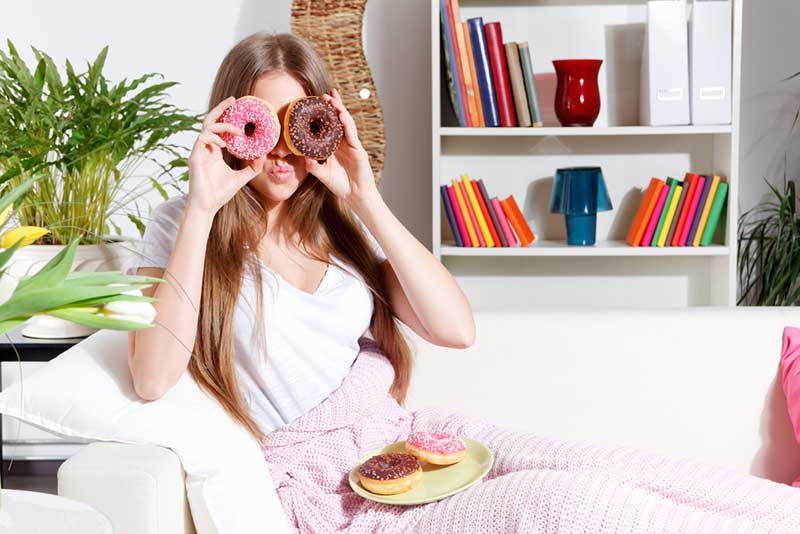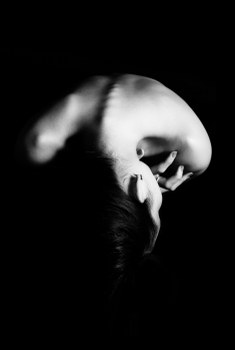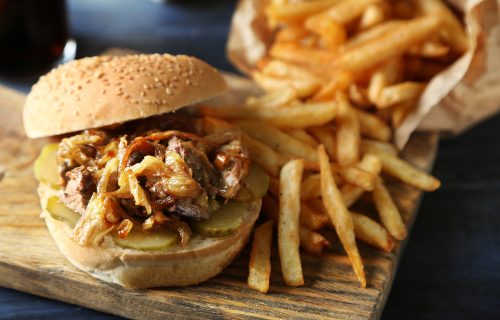
6 Steps To Permanent Weight Loss – Part #5
Today we’re going to explore the 5th part in this series on the key to permanent weight loss.
In the last post, I talked about three specific topics that most people worry about more than anything else, and why they have a significant impact on your appetite, weight and overall physical wellbeing, as well as creating significant obstacles to weight loss.
In this post, we’re going to be talking about body image, and in particular how body shame impacts your physical and emotional health.
What is Body Image?
In this youth and beauty obsessed world, it’s hard not to worry about the way we look. Many books, blogs and websites talk a lot about ‘body image’, but what does that even mean?
According to the National Eating Disorders Collaboration, body image is defined as a person’s perception of their physical self and the thoughts and feelings, positive, negative or both, which result from that perception.
Interestingly, when you ask the average woman how she feels about her body, she’ll describe it in terms of its appearance, and more specifically, what she doesn’t like about her appearance.
For example:
- By bum is too big;
- My breasts are too small;
- I hate my cellulite;
- I have jiggly arms
Women in particular, spend a lot of time worrying about the way they appear not just to themselves but to others.
Some people who don’t like what they see in the mirror try to convince themselves that they are still beautiful, despite their flabby stomach and jiggly arms.
Taking this approach only makes you feel worse though, because it reinforces the false premise that your worthiness depends first and foremost on your physical appearance.
What is Positive Body Image?
According to body image experts Lexie and Lindsay Kite: “Positive body image isn’t believing your body looks good. It’s knowing your body IS good, regardless of how it looks.”
If you haven’t explored their Beauty Redefined website, I highly recommend you take a look. They go into a lot more detail about body image resilience and they have some fantastic resources to help you do this.
The best way to combat the incredibly painful feelings of body shame is to acknowledge what our bodies can do for us and how they enhance our lives, so we can develop a strong sense of self-worth outside of our appearance.
Why We Feel Crappy About The Way We Look
So how did we develop such distorted views of what it means to be worthy and lovable?
I talk a lot about beliefs, because they pretty much impact everything we do.
When you’re very young, the critical analytical part of your mind isn’t fully formed yet, which means you’re highly suggestible.
Many of a child’s beliefs are formed in response to the messages they receive from those in authority, such as parents, teachers and even older siblings.
As adults, we are the gatekeepers of our minds. If someone tells us we are ‘ugly’ or ‘fat’, that message doesn’t necessarily have to get stored in our subconscious as a belief. In other words, we get to choose whether or not we agree with that message.
On the other hand, if you tell a young child they are fat and ugly, then that message will be stored and acted upon without question.
Now, it’s rare that any parent would stoop to this kind of cruelty, but even seemingly harmless comments can be detrimental.
Comments like: ‘You’re such a pretty little girl’ sends a message to our children that their value and worthiness depends on their physical appearance.
And here’s another interesting fact:
Even if your parents, teachers, aunts and uncles gave you positive feedback and messages about your value and worthiness in the world, if a significant adult in a child’s life engages in negative self-talk or shows signs of body shame, that will be absorbed and mimicked by the child as well.
Media Mayhem
But before you go blaming your parents for your negative body image, we need to take a look at where the bulk of your skewed beliefs about your body came from – and that’s mainstream media.
Media defines and reinforces our cultural ideals of what is beautiful and worthy.
Unfortunately for most of us, we don’t fit the ideal. Forget the fact that most of the women we see in the media are surgically enhanced, on top of that the images we see are also heavily photoshopped.
Now, many of my clients say: ‘Oh yeah, I know all that but I don’t pay any attention to it’. But the thing is you do, without even realising it.
In fact, the more media exposure a person has, the more likely they are to suffer from low self-esteem, body shame and eating disorders.
Think about it: when that unattainable standard of beauty (young, tall, thin, white, curves in all the right places) is in your face 24/7, it becomes your ‘new normal’.
When you look in the mirror and feel unlovable, deficient or unworthy, you’re responding to the internal subconscious messages that hold you up against these unattainable images of beauty.
The media, together with the weight loss and beauty industries want you to feel bad about yourself so you’ll spend money on their supposed ‘solutions.’
Self-Objectification
When people view themselves as objects for use instead of as human beings, this is called self-objectification. Both men and women struggle with this, but it’s most commonly seen among women.
In fact, most women imagine their bodies being observed and judged by others, without even knowing it. They check their reflection in the mirror, smooth down their hair and adjust their clothing, often as frequently as every thirty seconds.
As we consciously go about our days, the background message playing in a continuous subconscious loop is: ‘I don’t look like that therefore I am not enough’.
So, we frantically try to find ways to improve our appearance, and waste a lot of time, money and energy in the process.
When you live your life for the sole purpose of appearing physically acceptable to yourself and others, you’re not really living at all.
So many of my clients say to me: ‘When I look back at photos of when I was younger, I was so beautiful – yet even back then I felt fat and ugly’.
And that’s the rub; even if you did achieve the perfect weight or had the perfect shaped face or rock hard abs it still wouldn’t be enough. You’d find something else wrong and start to fixate on that.
Because it’s not about your body; it’s about a deeply conditioned and painful feeling of not being good enough.
The prison of self-objectification is a self-imposed prison and only you can set yourself free. The path to your freedom begins by becoming aware of your body shame triggers.
Body Shame Triggers
Body shame triggers are events or experiences that leave us feeling ashamed or despondent about the way we look.
Examples might be:
- A comment someone makes about your body
- An invitation to go swimming
- Getting on the scales
- Trying on clothes
- Weight loss or weight gain
- Catching a glimpse of yourself in a window or mirror
Triggers can be different for everyone, but for all people they’re tremendously painful. In fact, body shame is so painful that most of us would do anything to make it go away.
The False Security of Pain Minimisation
When a woman experiences body shame, the first reaction is to go into pain minimisation mode.
This usually involves avoiding situations that amplify the body shame or making plans to correct her perceived flaws.
For example, she may decline social invitations that she would normally enjoy attending, because she’s ashamed of the way she looks.
Here’s what this typically look like:
- ‘I can’t go to the pool looking like this! I’ll go next time when I’ve lost some weight.’
- ‘I can’t attend that reunion – all my old friends will see how much weight I have gained.
- ‘There will be no healthy foods at this party – I’d better not go…’
These intense feelings of unworthiness keep us stuck in a cycle of shame and self-hatred that we believe can only be broken by avoiding sources of body shame or correcting our supposed flaws.
We may go on a rapid weight loss diet, buy new clothes or even make plans for cosmetic surgery.
I’m not saying it’s wrong to want to improve yourself. It’s just that if you do any of these things in order to erase intrinsic feelings of unworthiness, it won’t work.
In fact trying to correct our supposed physical flaws reinforces the deeply conditioned message that our worthiness is and always will be determined by the way we look.
We have to recognise these unhealthy messages for what they are, and take steps to remove them from our subconscious minds. >/p?
p>Nobody ever looks back at the end of their life and says: ‘I wish I’d lost a few more kilos’. Yet we live our lives as if our appearance is the only thing that matters.
Slaying The Body Shame Dragon
Imagine your body shame as a fierce dragon that breathes scorching fire.
This dragon has been bullying you for a long time. In fact It’s been around for so long that you may not even know it’s there anymore – but it’s always there, lurking in the background.
When you try to push the dragon away via pain minimisation, this may bring relief for a short time, but ultimately it only gives the dragon more power.
The only way to deal with the body shame dragon is head on. We have to open our eyes and say:
‘I see you’
When we recognize harmful messages about women’s bodies that we’ve become desensitised to, we open the door to a new perspective.
As conscious beings, we have the power to sift and sort between messages that nurture us and ones we can do without.
Ignoring the harmful messages from the media and our society helps us slowly carve the key that will free us from our prisons so we can decide for ourselves what it is to be healthy, worthy and lovable and live our lives on our own terms.You can also take the help of weight loss hypnotherapy Melbourne.
See you in the next post!









